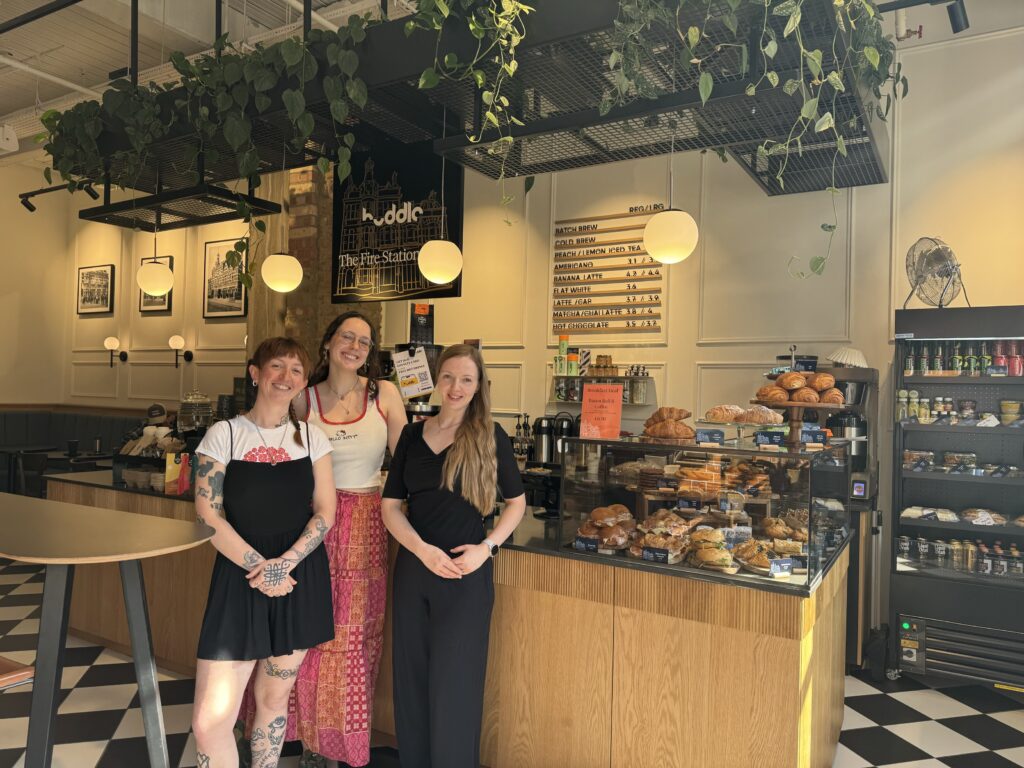From Fire Alarms to Flat Whites: Fireman Bob Returns to His Old Station — Now Huddle Wimbledon’s Own Café
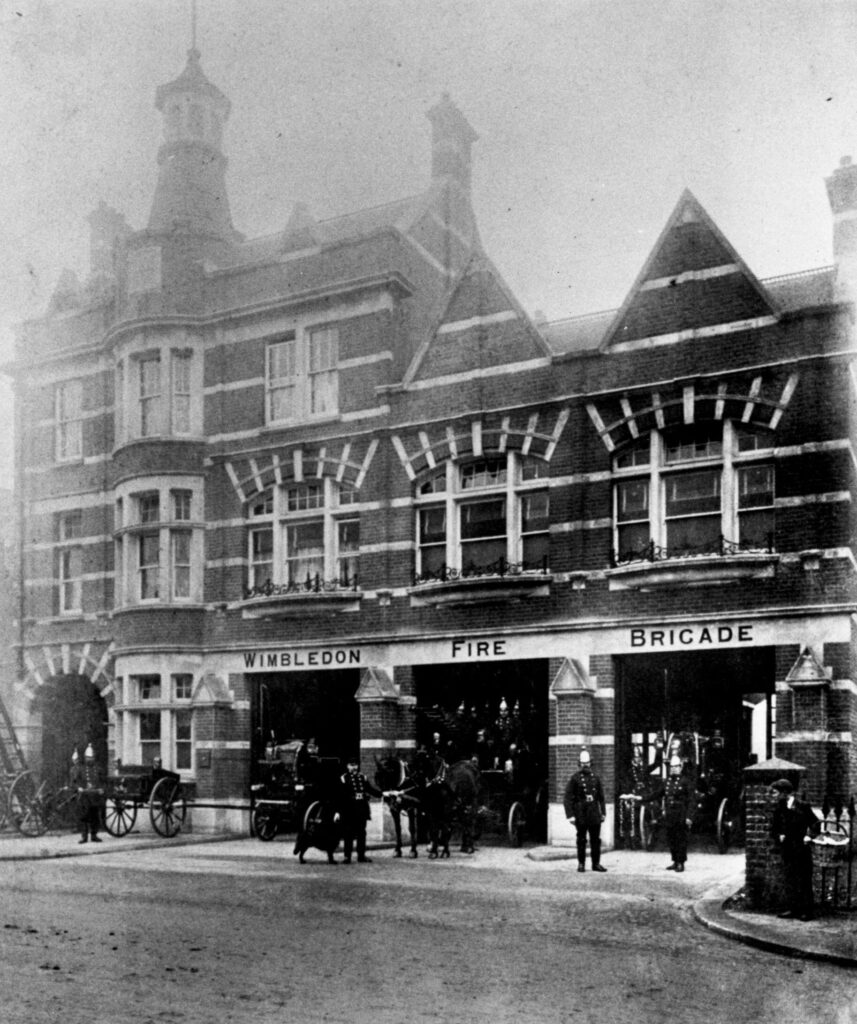
At Huddle, we like to think of our spaces as more than just a coworking hub — and at Huddle Wimbledon, we are very proud to occupy a piece of living history. Our ground floor eatery, The Fire Station Café, sits within a Grade II listed building that housed the Wimbledon Fire Station between 1904 to 1980. Today, it serves as a place for enjoying a flat white, connecting with friends or catching up on emails.
Last week, Wimbledon’s local paper The Wimble sat down with Bob Stone — firefighter, father and true Wimbledon legend — for a conversation that brought the past roaring back to life. We’re proud to republish the full article below, courtesy of The Wimble, from their 17th April 2025 issue.
Meet Bob Stone: Firefighter, father and Wimbledon legend 🚒
Originally published in The Wimble on 17th April 2025. Written by Zak Asgard.
Robert (Bob) Stone was born in Wimbledon in 1947. After leaving school at 14, he took on various jobs before joining the London Fire Brigade in 1974. He worked in fire stations all over London — from New Malden to Fulham — but was instrumental in his service at Wimbledon’s fire station in the 70s. On Monday, Bob and I sat down in The Fire Station Café, the former site of Wimbledon Fire Station. I asked Bob about his life as a firefighter, the changing landscape of Wimbledon, and why this area means so much to him.
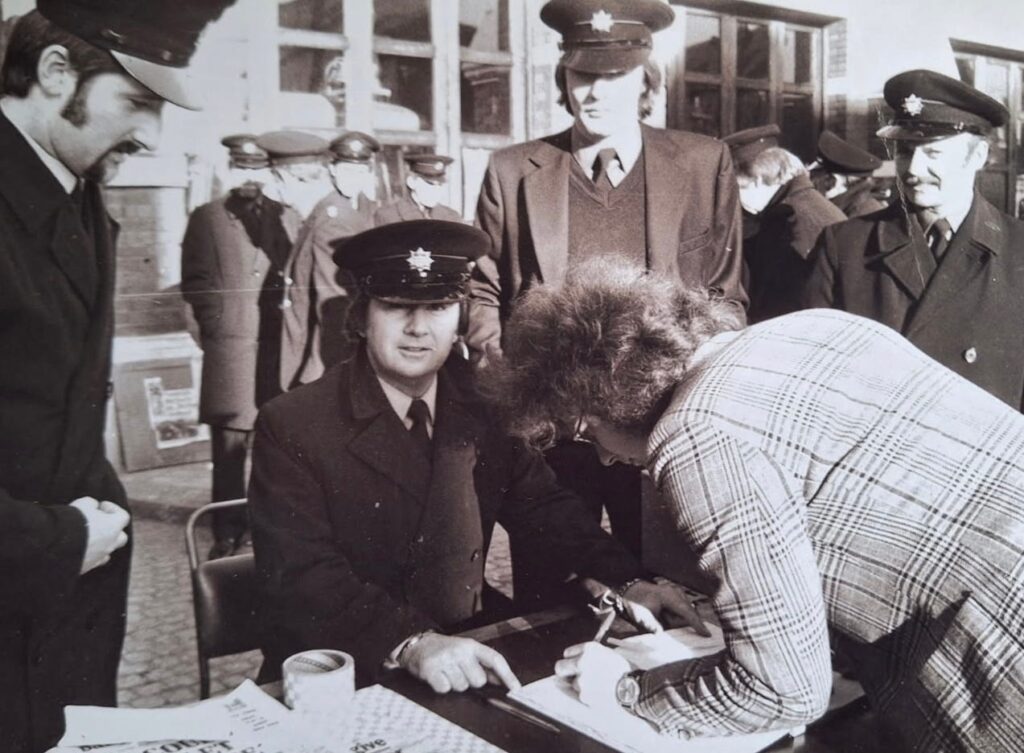
It’s a sunny day in Wimbledon’s town centre. Bob sits opposite me in The Fire Station Café. I ask him if it’s strange to be back after all these years. “This café has been lovely to see,” he says, looking around. He points at various parts of the room and paints a picture of yesteryear. “I’m so glad that they kept the bay window. That window holds a lot of memories for me. It was in front of that very window where we set up our table on the first day of the 1977 strike.”
The strike lasted for nine weeks and saw the Fire Brigade receive a 16 per cent pay increase. “We had tremendous support from the people of Wimbledon back then. They saw us working in and around the area every day and had a great respect for what we did.”
I ask Bob to take me back to the beginning. After leaving school at 14, he took a job at Forget Me Not Cards on a local factory estate. He left that job at 15 and went to work at two different golf courses on Wimbledon Common. But after his wife became pregnant with their first child, Sarah, Bob took a job at the London Stock Exchange. “It was good money, but I got fed up with it over time. I didn’t like the people and they didn’t like me. I used to get on the tube at South Wimbledon station with my copy of The Sun and my colleagues would get on at Clapham and places like that with their copies of the FT, and they would just ignore me. And I didn’t really love the job.”
His career break came via his dad. “My dad used to read the Daily Mirror, and I was just visiting my parents one day and having a flick through the sports pages when I came across an advert for the London Fire Brigade,” he tells me. “That was 1973. I started my training, which took 12 weeks, and joined my first station in New Malden in 1974.” New Malden was different back then, he says.
On his first day, the Station Manager took Bob’s axe from him and replaced it with a pitchfork. “It was a very rural area. We dealt with a lot of farm fires, and it was much quieter there than in Wimbledon.” In 1975, he transferred to Wimbledon’s fire station. He was here for just under three years before the strike started.
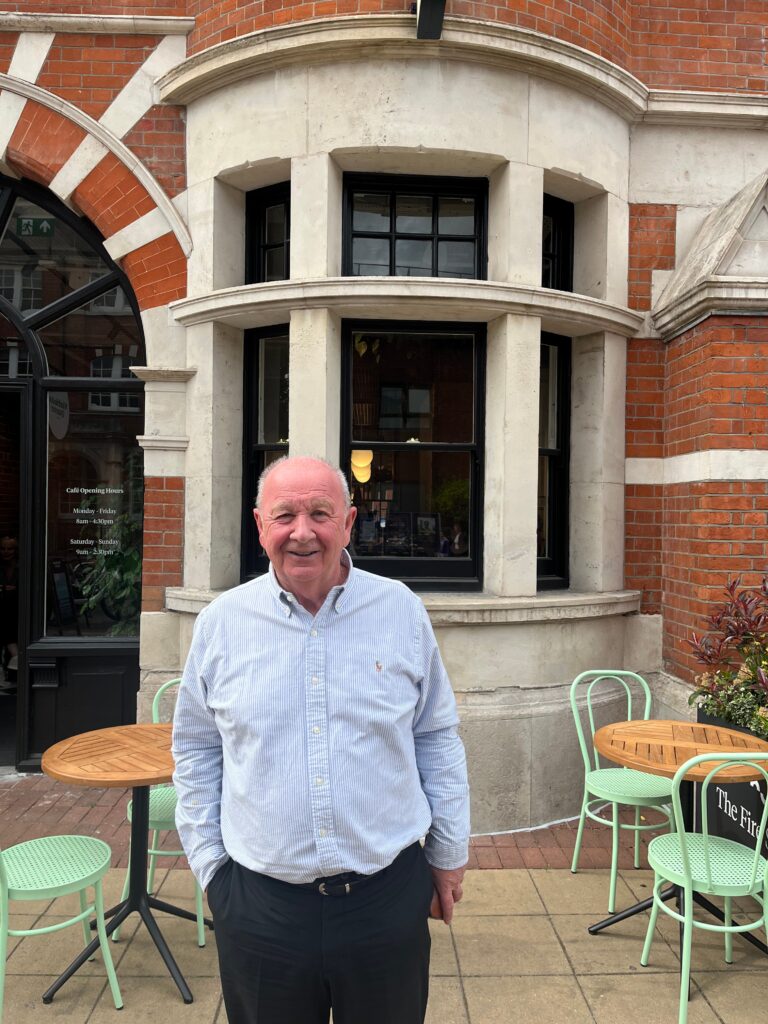
I wonder aloud what a day in the life of a firefighter was like in the 70s. “House fires were the bread and butter of firefighting in those days. That’s largely because fire education was so bad, what with paraffins and terrible electricals … and people weren’t as cautious when it came to fire safety. I mean, we had residents using silver paper for fuse wire.” But it’s not just the people that have changed. When Bob was fighting fires in Wimbledon, the Brigade’s equipment was nothing like it is today. Most of their rescue kits were only a fraction as practical as their updated models.
But Wimbledon had its fair share of big fires, too: “We had regular fires at the Merton Board Mills. They had all this paper stacked tightly together, and we’d have to go there quite often. The difference between now and then is that in the 60s, 70s, 80s, and even the early 90s, firefighters would turn up to a fire and they would go in.”
Since then, times have changed: “We didn’t have the equipment they have now. We used to enter a building and contain the fire to one room. Today, fires often burn through a whole house because they have to do an H&S and risk assessment first.”
He points at the bay window in the café and tells me that the teleprinter used to sit beneath it: “When that went off, and it said ‘persons reported’, we knew we had a job. And then we would get all rigged up and go. Because it took so long to set things up when we got to a fire, we just went in.”
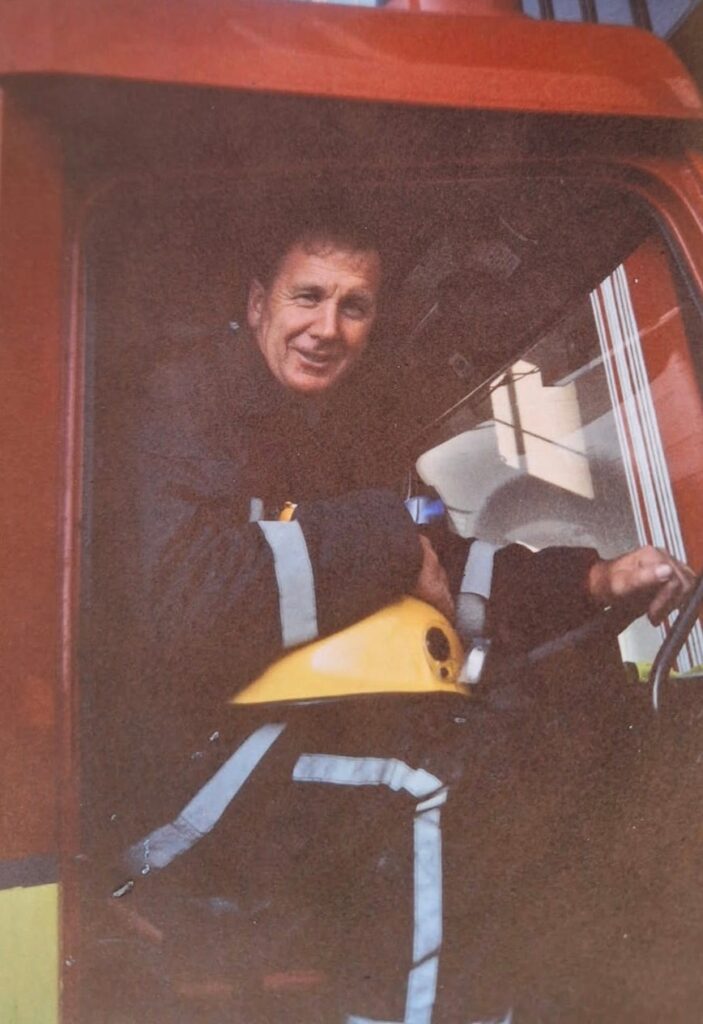
I ask Bob to tell me if there’s any particular day that he’s proudest of, if there’s any moment from his time serving the community that sticks out to him: “There used to be the Manor Club on Kingston Road. Now it’s a block of flats. I was off-duty and drinking there one day with a colleague from the Fulham station when a fire broke out.” That day, the bar was having barrels delivered. Bob and his colleague were enjoying a beer when they began to smell smoke. “We went to the cellar door, opened it, and the smoke came billowing out.” The cellar-man, known to locals as Paps, was down there. Bob jumped into action and managed to get through the smoke and rescue him.
When Bob retired in 2000, the London Fire Commissioner sent Bob a letter. In it, he commended him for his service, but he also drew special attention to that day in 1982 when Bob was off-duty and drinking in the Manor Club.
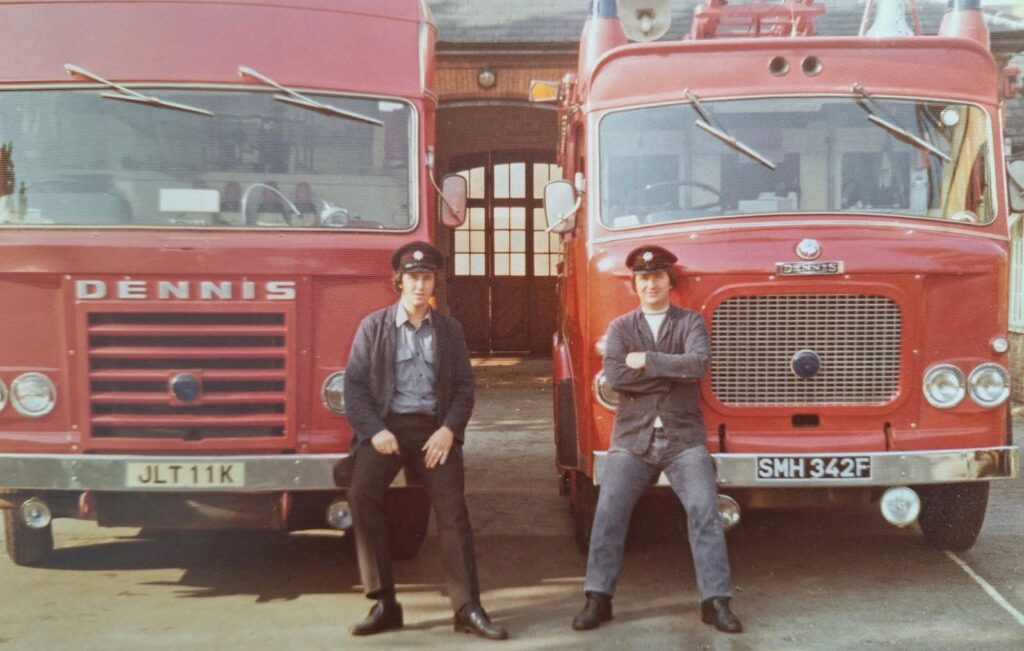
We chat a little while longer about Bob’s career as a firefighter, his retirement, how he became a Fire Safety Officer for events and famous film premiers like Pearl Harbour and the first Fast & Furious instalment. And then I ask Bob about Wimbledon. Why did he stay here for all these years?
“It’s about the memories. I have memories of being raised here, of raising my two daughters here, of my wife. It means so much to me, this area,” he says. “South park Gardens, seeing The Beatles at the old Wimbledon Palais, working for the fire brigade at the Wimbledon Championships for 25 years. I think people like me are a dying breed in Wimbledon, but this area means a lot to me. It means everything.”
Bob has an abundance of amazing stories and insights, and if anyone reading this article would like to ask him a question, please do get in touch via my email.
From saving lives to serving lattes, The Fire Station has seen it all. Thanks to The Wimble for this brilliant interview — and to Bob, for everything he’s done for Wimbledon. If you’re grabbing your morning coffee at The Fire Station Café, remember: you’re standing on heroic ground.
Keep up to date on all things Wimbledon by subscribing to The Wimble below.
Share this post
